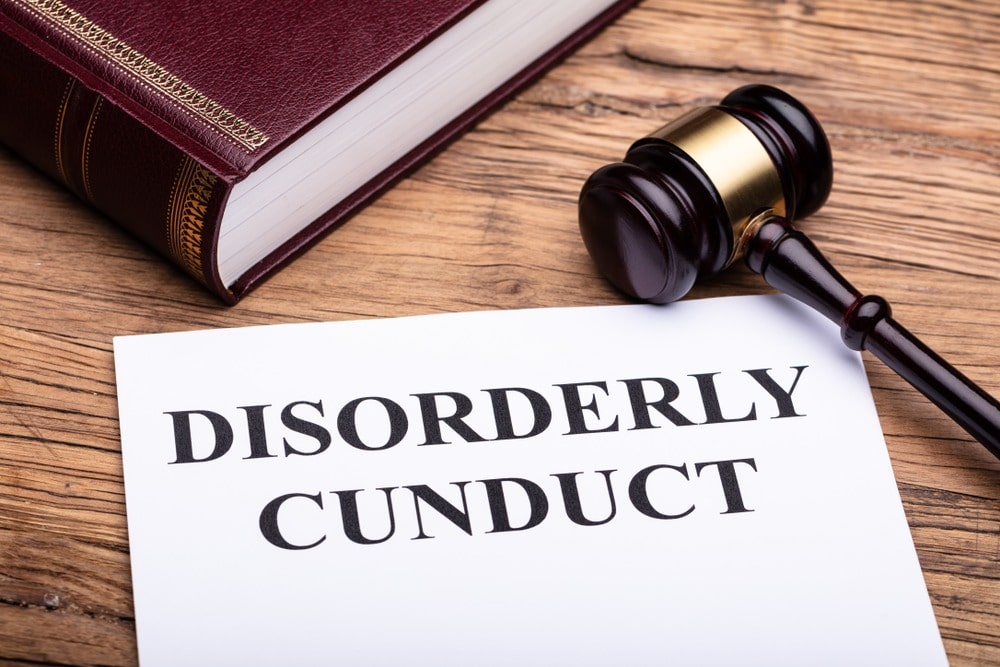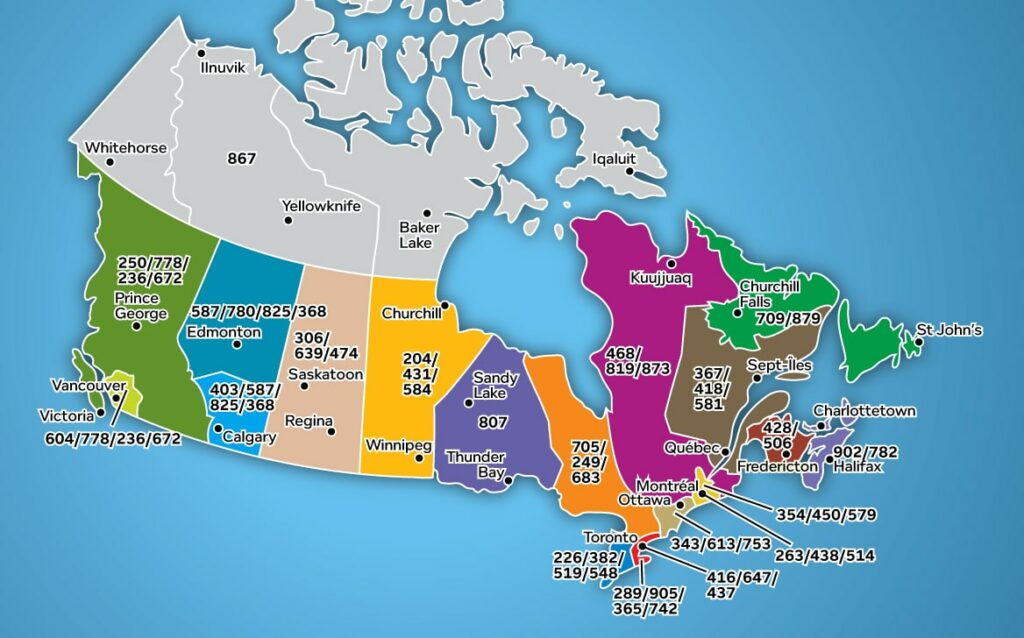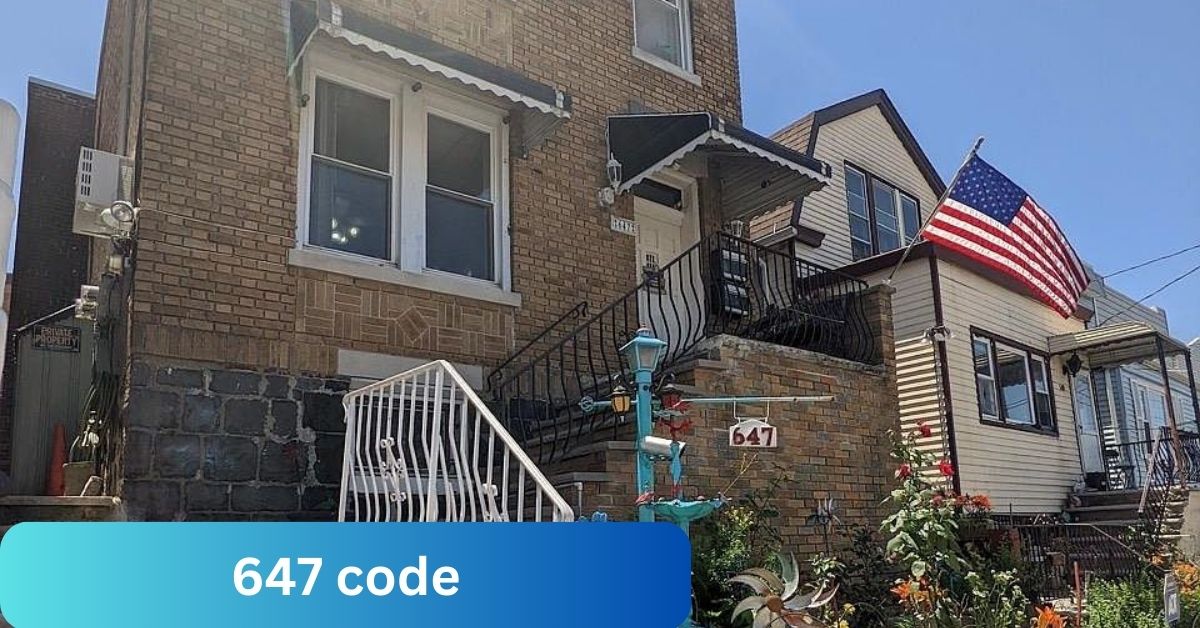647 Code – Explore The Unexplored In 2024!
California Penal Code 647, commonly called the “647 code,” encompasses a wide range of offenses known collectively as disorderly conduct.
“647 code” refers to California Penal Code section 647, addressing disorderly conduct like public intoxication and lewd behavior. Violations can lead to fines, jail time, and immigration issues for non-citizens.
In this comprehensive guide, we will delve into the various aspects of Penal Code 647, exploring its subsections, legal defenses, penalties, and implications.
Table of Contents:
Exploring the Subsections of Penal Code 647 – Discover More Here!
Penal Code 647 is divided into several subsections, each addressing distinct forms of disorderly conduct:

- Lewd Conduct (647a PC): This subsection prohibits engaging in or soliciting lewd acts in public places or areas visible to the public.
- Prostitution (647b PC): It is illegal to offer, agree to, or engage in acts of prostitution, which involves exchanging money or valuables for sexual services.
- Begging (647c PC): Accosting individuals in public to solicit donations or alms is considered disorderly conduct under this subsection.
- Squatting (647e PC): Occupying or lodging in a building, structure, or vehicle without permission from the owner constitutes a violation of this provision.
- Public Intoxication (647f PC): Being visibly intoxicated in public to the extent that one cannot exercise care for one’s safety or the safety of others is punishable under this subsection.
- Loitering (647h PC): Loitering on private property intending to commit a crime is prohibited by this provision.
- Peeking (647i PC): This subsection addresses the act of peeking into inhabited buildings while loitering on private property without lawful business.
- Invasion of Privacy (647j PC): It is unlawful to invade someone’s privacy by using devices to spy on or secretly record them in private spaces.
Legal Defenses To Penal Code 647 Charges – Access More Right Away!
Individuals accused of violating Penal Code 647 can assert several legal defenses, including:

1. Not in Public or No Loitering:
I was demonstrating that the alleged conduct did not occur publicly or while loitering can serve as a valid defense. In challenging a 647 code accusation, establishing that the purported behavior didn’t transpire in a public area or during loitering becomes pivotal.
Providing evidence that the actions occurred within a private space or had a lawful intent, like being on personal premises, is crucial in disputing the allegations and evading legal penalties.
2. No Probable Cause:
They were challenging the validity of the arrest by asserting that law enforcement lacked probable cause to detain the individual. In contesting a 647 code charge, disputing the legitimacy of the arrest becomes crucial by arguing that law enforcement officers lacked sufficient grounds, or probable cause, to detain the individual.
This defense hinges on demonstrating that the arrest was unjustified, potentially leading to the dismissal of charges or a favorable outcome in court.
3. Falsely Accused:
They assert innocence by demonstrating that the allegations are false or based on mistaken identity. In the case of a 647 code accusation, claiming innocence becomes paramount by showing that the allegations are unfounded or stem from a case of mistaken identity.
By proving that the individual was wrongfully blamed for the alleged offense, there’s a chance of dismissing the charges or securing a favorable verdict in court.
Read Also: Clearway Law – An Ultimate Guide In 2024!
Penalties and Implications of Violating Penal Code 647 – Dig Into The Information!
Violations of Penal Code 647 are typically charged as misdemeanors, punishable by Custody in the county jail for up to six months and a maximum fine of $1,000.

Additionally, certain offenses under Penal Code 647 may have immigration consequences for non-citizen defendants, potentially leading to deportation or inadmissibility.
Violations of Penal Code 647, commonly known as disorderly conduct offenses, can have serious consequences. Typically charged as misdemeanors, these offenses can result in various penalties upon conviction.
Offenders may face custody in the county jail for up to six months. In addition to jail time, guilty individuals may be subject to a maximum fine of $1,000. Moreover, the implications of violating Penal Code 647 extend beyond mere legal penalties.
For non-citizen defendants, there may be significant immigration consequences to consider.
Conviction under this code could lead to deportation or being labeled as “inadmissible.” Given these potential repercussions, it’s crucial for individuals facing charges under Penal Code 647 to seek legal counsel promptly to understand their rights and explore defense strategies.
Understanding the severity of the penalties and potential immigration implications underscores the importance of taking disorderly conduct charges seriously.
Seeking assistance from experienced legal professionals can be vital in navigating the complexities of the legal system and working towards the best possible outcome for the accused.
Read Also: Makena Lei Gordon Carnahan – A Rising Star In The Entertainment World!
How Does A Violation Of Penal Code 647 Affect Gun Rights? – Learn More in Just One Click!
A violation of Penal Code 647 typically does not directly affect an individual’s gun rights in California. Penal Code 647 primarily addresses disorderly conduct offenses such as lewd conduct, public intoxication, prostitution, and related behaviors.
While these offenses are misdemeanors and can result in penalties such as fines and jail time, they are not typically considered disqualifying crimes for gun ownership under California law.
However, it’s essential to note that certain convictions for more serious offenses, such as felonies or certain violent misdemeanors, can result in the loss of gun rights.
These disqualifying crimes are outlined in California’s firearm laws, particularly in Penal Code sections 29800 and 29900, which prohibit individuals convicted of specific offenses from possessing firearms.
Therefore, while a violation of Penal Code 647 itself may not affect gun rights, individuals facing criminal charges should seek legal advice to understand the potential consequences for their rights and future eligibility to possess firearms under California law.
Additionally, non-citizens should be aware of potential immigration consequences associated with criminal convictions, which could impact their ability to possess firearms and remain lawfully in the United States.
Read Also: Dukagjin Lipa – Uncover The Story Behind The Name!
Understanding Related Offenses and Legal Framework – Dive Deep Into The Information!
Penal Code 647 is part of a broader legal framework that addresses disorderly conduct and related offenses in California. Understanding these related statutes is crucial for navigating legal proceedings and potential defense strategies. Among the critical statutes linked to Penal Code 647 are:

1. Disturbing the Peace (PC 415):
This statute prohibits engaging in fights, creating loud disturbances, or using offensive language likely to provoke violence in public places. It aims to preserve public order and prevent disturbances that could endanger individuals or disrupt communities.
2. Trespass (PC 602):
Criminal trespass involves entering or remaining on someone else’s property without authorization. This offense protects property rights and aims to prevent unauthorized access that could lead to property damage or intrusions on privacy.
3. Indecent Exposure (PC 314):
This offense involves willfully exposing one’s genitals in a public place to gratify oneself or offend others sexually. It aims to maintain public decency and protect individuals from unwanted exposure to lewd behavior.
“Understanding the nuances of these related offenses can be instrumental in building a defense against charges under Penal Code 647. Legal professionals can assess the specific circumstances of each case and identify relevant statutes to formulate effective defense strategies.
By comprehensively understanding the legal framework surrounding disorderly conduct offenses, individuals can better navigate legal proceedings and advocate for their rights in court”.
Frequently Ask Questions:
1. When Does the 647 Code Apply?
The 647 code applies when someone engages in the abovementioned behaviors. These actions are considered disruptive to public order and safety.
2. Why is the 647 Code Important?
The 647 code is essential for maintaining public safety and protecting individuals’ rights to privacy and security. The law helps ensure communities remain safe and orderly by addressing disorderly conduct.
3. How Does the 647 Code Impact People?
Violating the 647 code can have serious consequences, including fines and jail time. It can also lead to immigration issues for non-citizens. Understanding and complying with the 647 code is essential for avoiding legal trouble.
4. Are there any defenses against charges under Penal Code 647?
Yes, common defenses include demonstrating that the alleged conduct did not occur publicly or while loitering, challenging the validity of the arrest due to lack of probable cause, and asserting innocence if falsely accused.
Conclusion:
Understanding Penal Code 647 and its related statutes is crucial for Californians to avoid legal issues. Individuals can protect their rights and navigate legal matters effectively by staying informed and seeking legal guidance.
Read Also:







